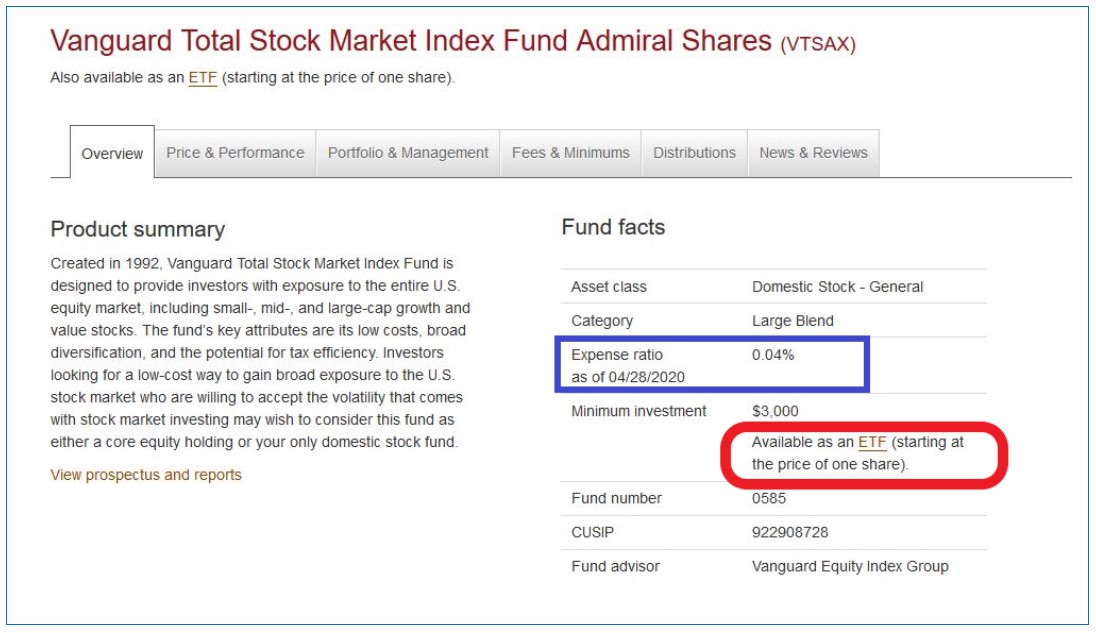Previously we discussed the concept of “Opportunity Cost”. If you choose to do one thing, you forgo many other choices. This “cost” is true whether it is money, time, or any other asset.
We talked about the opportunity cost of going on a ‘once in a lifetime’ 10 day trip to the 75th anniversary of D Day on Omaha Beach in the middle of our Valencia house deal. We talked about the opportunity cost of buying a classic car in 1984 for $10,000.
Here are the other 9 investment options, in (perceived) order of risk to capital:
- Cash
- US Treasury Note
- Bank Certificate of Deposit (CD)
- A Bond Mutual Fund (VBTLX – Total Bond Market Index Fund)
- A Stock Mutual Fund (VTSAX – Total Stock Market Index Fund)
- A REIT Mutual Fund (VGSLX – Vanguard REIT)
- Crowdfunding (a real estate play)
- Gold
- Angel Investing (investing in startup companies)
Today we are talking about Stock Mutual Funds.
First, what is a ‘Mutual Fund’?
Here is a practical description of Stock Mutual Funds.
So, a “Stock Mutual Fund” is a mutual fund that invests only in stocks, stocks are equity (ownership) of publicly traded companies:
Specifically, we chose the Vanguard Fund “VTSAX – Total Stock Market Index Fund” because of the low expense ratio, see below.
Why Vanguard? Two well-known FIRE bloggers can explain it better than I can:
‘Mr. Money Mustache’ who I highly recommend for his financial insights …
…recommends Vanguard:
Another blogger, ‘My Money Wizard’, explains five reasons to go with Vanguard:
- Vanguard funds are cheap [low expense ratio]
- Vanguard is different – they’re owned by the investors
- Vanguard’s mutual funds are the most tax efficient funds in the world.
- Vanguard created the index fund
- Speaking of that Jack, he’s one of the few good guys in the world of finance
By low expense ratio we mean 0.04%. For comparison, some funds charge up to ten times as much, 0.51%. That’s why we go with Vanguard. Here’s some interesting information on the late John “Jack” Bogle who founded Vanguard and is the father of index investing.
Note that the “VTSAX – Total Stock Market Index Fund” is also available as an EFT. What is an EFT?

For our purposes, they can be considered effectively the same. But’s here is more if you are interested:
Where do stock mutual funds fall on the risk (perceived or real) scale. Long term, we think that stocks, especially if bought as a component of an established mutual fund (always buy Vanguard), are relatively low risk. If the economy is doing well and we do not have a general societal breakdown, companies will do well and their stock prices will appreciate, certainly in line with inflation. Why buy mutual funds and not individual stocks? Do not try it. You will lose money. Virtually no one is successful at picking individual stocks. That is the basic argument for index investing.
What is “risky” for stock funds and especially individual stocks is volatility.
Here’s an example. Here is the value of $10,000 invested in VTSAX on January 1, 2020.

Due to COVID, by the end of March you have “lost” $2,000. Would you sell and take your losses? By August, you have made it back and more. But then in October you lose some and are just barely above the $10,000 initial investment. But you hang in and by December you have made 20%; you’re over $12,000. How do you like the roller coaster?

For the next Opportunity Cost option, we’ll look at a Real Estate Investment Fund (REIT); a mutual fund that invests only in real estate. Our choice was the “VGSLX – Vanguard REIT”.
